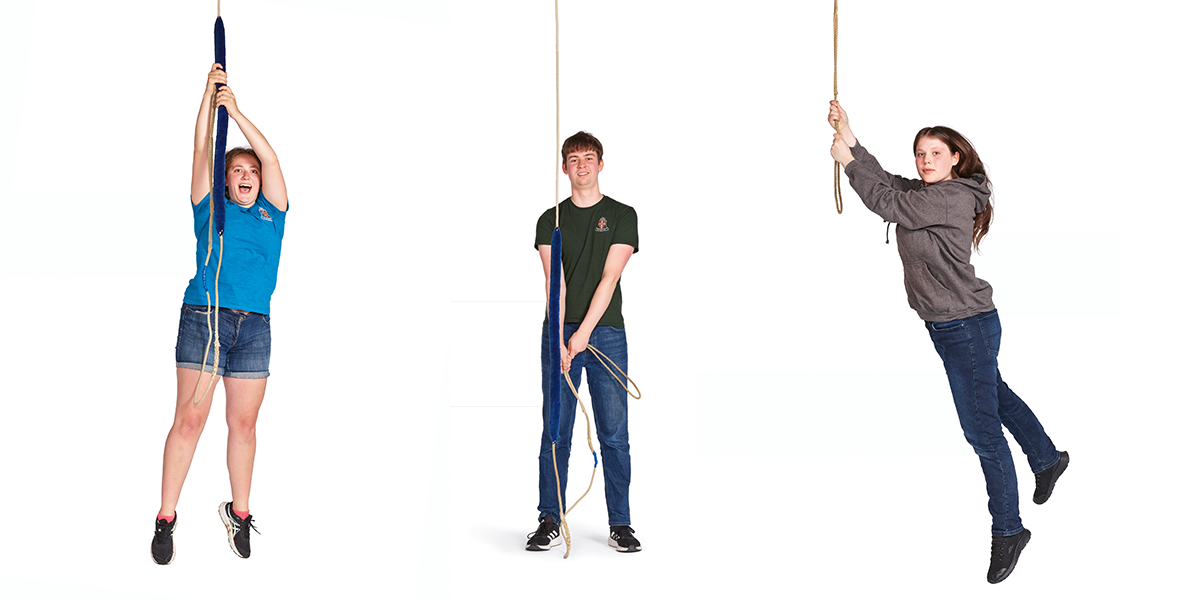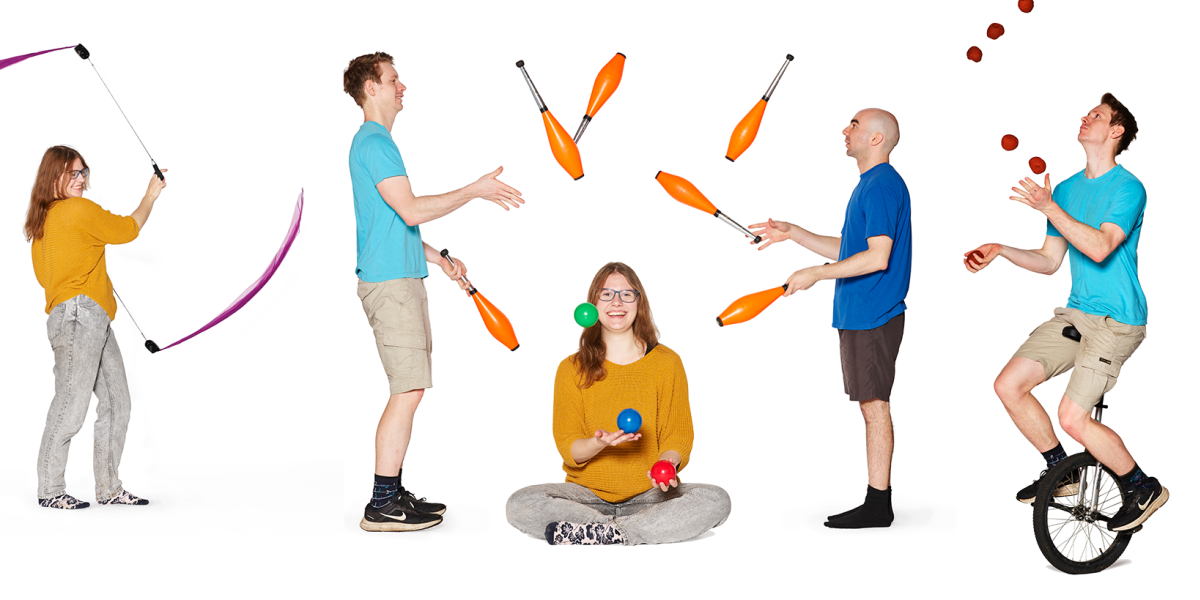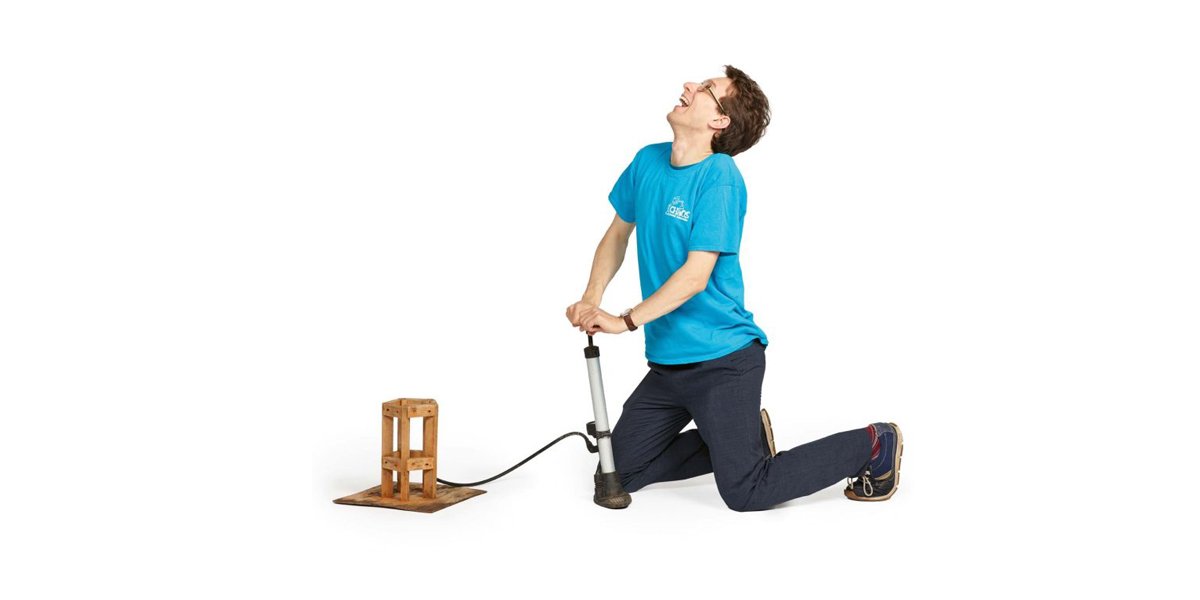From left: Lucy Hennessy, Trinity Hall, Third Year Computer Science; Sam Spencer, Downing, Third Year Computer Science; and Amy Dunn, Emmanuel, Third Year NatSci.
Ding Dong Merrily on high!
The Guild of Change Ringers makes sure everyone is ready to pull their weight.

Next time you’re unexpectedly sweltering in a British summer, spare a thought for a somewhat overlooked group of sufferers: bellringers. Because it turns out that in the 12th century, churches were not built for heatwaves. “I don’t mind the cold in ringing rooms, but when it’s hot and stuffy it can be a problem!” says Jadd Virji (Trinity 2020), a member of the Cambridge University Guild of Change Ringers (CUGCR). “But you never know what to expect, especially when you’re ringing in a church you haven’t been to before. We had a competition in Somerset recently where I brought three changes of clothes, as I didn’t want to be freezing in a T-shirt…”
But icy or boiling churches are all just part of the joyous experience of bellringing, he says – and that, plus the camaraderie in the Guild, more than makes up for any inclement conditions. Founded in 1879, CUGCR welcomes both experienced change ringers and those who don’t know their garter holes from their gudgeons. They hold regular ringing sessions at the churches of Great St Mary’s (12 bells), St Bene’t’s (six bells) and St Andrew the Great (eight bells), as well as teaching sessions for new ringers to learn the basics of physically handling a bell. “In fact, one of my favourite things is to see people improving,” says Virji. “It just feels good when you make progress, and I include myself in that, of course.”
The activity is inherently social, Virji points out – it’s impossible to ring a touch (a short piece of ringing) by yourself – and the Guild is also often joined by local bellringers and Guild alumni. “If you’ve got six bells, say, and there are 14 people, only six people are ringing the bells at a time, and each change lasts about ten minutes. So, there is plenty of time to chat while you’re not ringing.” It makes sense, therefore, that bellringing isn’t the only ancient ritual that the Guild enjoys: friendly post-ringing pub gatherings and dinners are also vital.
“I really enjoy the black-tie dinners we hold every year, which are attended by members from years back,” says Virji. “Usually, one of them will make a speech and it’s fascinating to hear about what it was like ringing in past decades. We also have a lovely tradition where the Master of the Guild – currently Sam Spencer (Downing, Third Year) – and five other less experienced ringers will ring a handbell touch in the middle of the dinner. They practice that for months beforehand.”
As a former chorister, Virji has a longstanding interest in church music. But, he points out, you don’t need to be a musician to be a great bellringer. “Of course, you need to be aware of what’s happening rhythmically, and you need to be accurate. I like trying to get as accurate as I can. So, I guess that’s kind of a musical aspect. But it’s fascinating to think about what other skills bellringing calls upon.
“I enjoy maths and there are mathematical rules involved in working out a composition, as there are rules you need to follow – I’ve also dabbled in computer programming to generate valid compositions. Though, of course, you also don’t need to know anything about maths to ring, either. It just becomes part of your muscle memory, your subconscious. But there are so many different people who love it. You might say bellringing is a broad church!”
To find out where the CUGCR will be ringing next, visit their website.
 CAM
CAM

